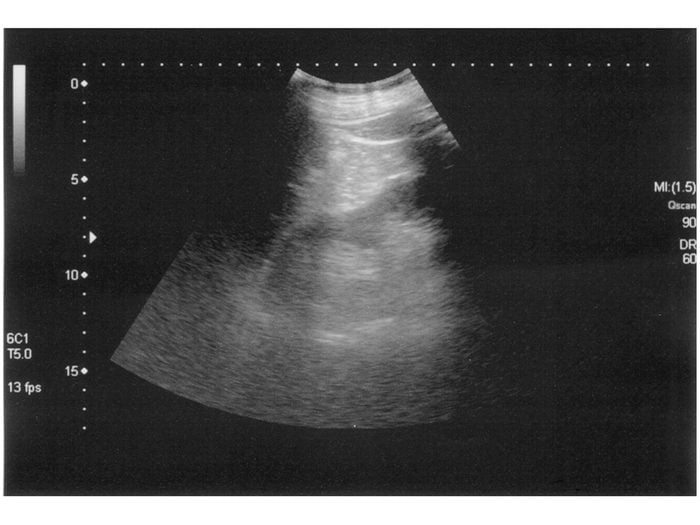
What is a gallbladder attack?
A gallbladder attack occurs when there is a gallstone blocking bile, according to SriHari Mahadev, MD, a gastroenterologist with NewYork-Presbyterian/ Weill Cornell Medicine. When the gallbladder contracts or squeezes—often in response to eating a fat-heavy meal—this blockage causes acute pain. As the gallbladder relaxes, the pain goes away, explains Niket Sonpal, MD a gastroenterologist and adjunct professor of clinical medicine at Touro College of Osteopathic Medicine, in New York City. Here are the warning signs of a gallbladder attack that you need to know.
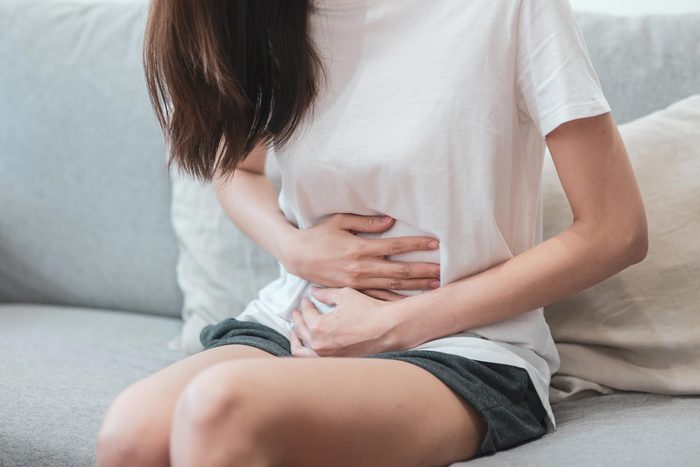
Pain in the abdomen
Stomach pain is one of the most common gallbladder attack symptoms and is usually in the upper right side of the abdomen. Sometimes this pain radiates around to the back as well as the right shoulder, Dr. Mahadev says. “It is usually sharp and lasts anywhere from a half hour to an hour after eating and then will often resolve,” he says. These are the 7 silent signs of gallbladder cancer you shouldn’t ignore.
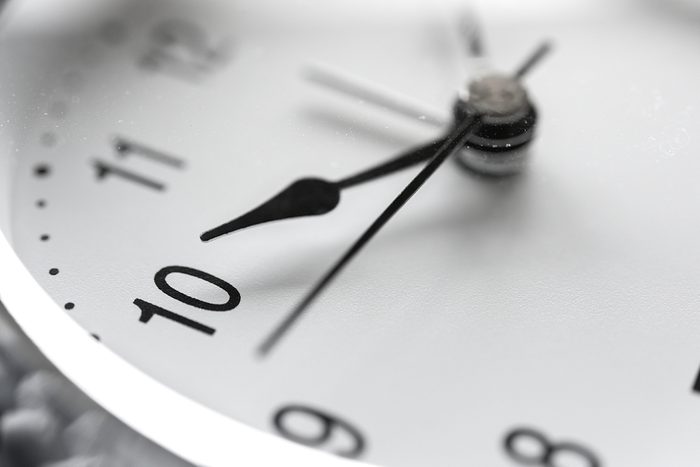
This pain comes and goes
It’s very common that pain from gallstones comes and goes because the stones tend to pop in and out of the gallbladder, Dr. Mahadev says. People sometimes confuse a gallbladder attack with pancreatitis, but the difference is that pancreatitis pain is more constant, aching, and present for hours and hours—a gallbladder attack is not.

You feel this pain after eating high-fat meals
Dr. Mahadev says generally not feeling well after eating something greasy and fatty is the best clue that you might have a problem with your gallbladder. “People will often talk about eating a hamburger or an omelet or something greasy and the reason for that is because fat entering the intestine actually releases a hormone that causes the gallbladder to squeeze,” he says. The squeeze causes pain thanks to gallstones. Here are the 9 best foods you can eat for a healthy gallbladder.
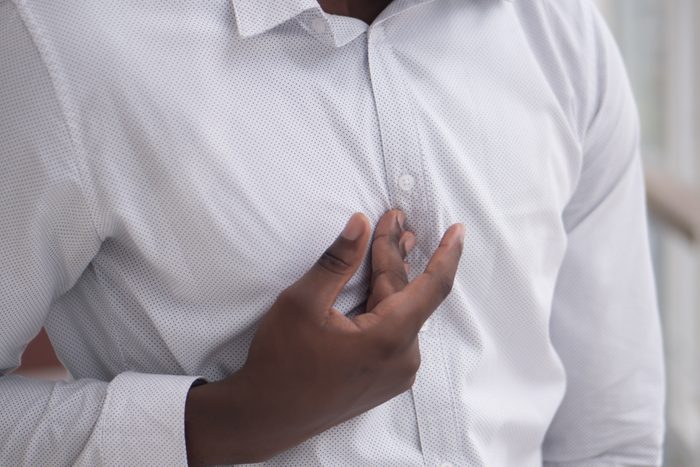
You have nausea, vomiting, or heartburn-like symptoms
These two gallbladder attack symptoms are less common and are also linked to many other health issues. In fact, people experiencing gallbladder attack symptoms might mistake them for heartburn or acid reflux. Although nausea and vomiting might not be the best single indicators of a gallbladder attack, people with these symptoms paired with others from this list should speak with their doctor—especially if you have repeat episodes. “Patients may feel overwhelming nausea, and vomiting especially after really fat heavy meals,” Dr. Sonpal says. This woman’s “heartburn” turned out to be cancer.
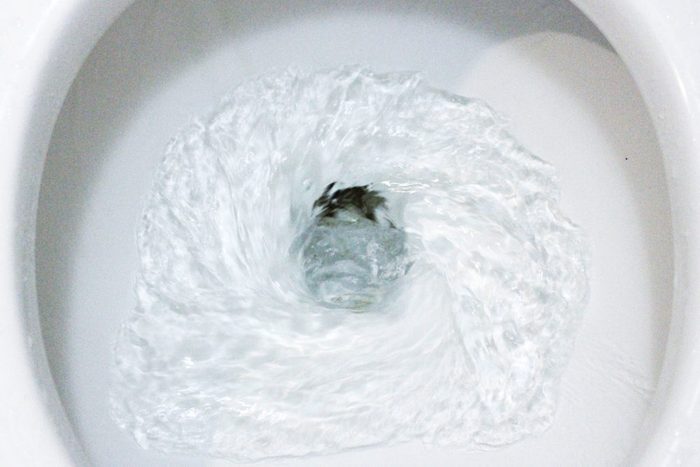
Your urine is dark and your stools are lighter than usual
No one wants to really take a good look at their poop, but doing so could help indicate a gallbladder attack. Dr. Mahadev says to beware of stools that float and don’t flush. “That’s a sign that you actually maybe have an obstruction of the bile flowing out because bile helps to digest fat,” Dr. Mahadev says. “If you have a blockage in the bile duct or the pancreas duct, then you are not absorbing the fat in your food and so it makes the stools fatty and float.” This blockage is also why your poop might be lighter and your pee might be darker, too.
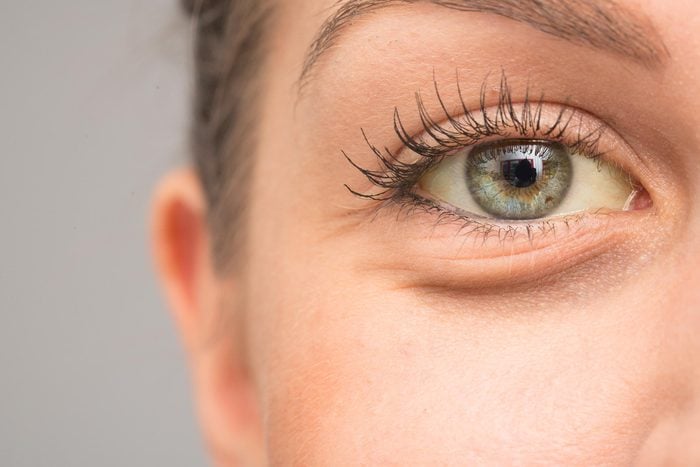
Your skin or eyes are yellowing
Jaundice, or yellowing of the eyes or skin, is associated with stones falling out of the gallbladder and sticking in the bile or pancreas duct, according to Dr. Mahadev. Jaundice is also present in some people with other health issues like anemia or liver problems, Healthline reports. Another tell-tale sign of jaundice is unexplained itchiness that’s not linked to a rash.
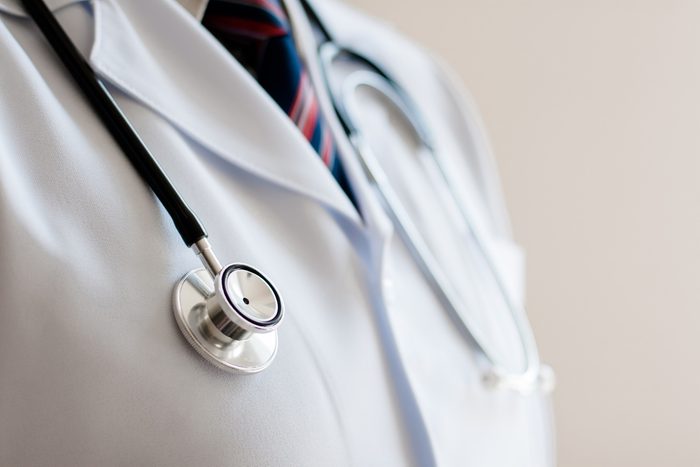
Talk to your doctor about these symptoms and other risk factors
Make sure to speak with your doctor if you experience these gallbladder attack symptoms. Note, however, that not everyone who has gallstones experiences a gallbladder attack or other symptoms from the stones, Dr. Mahadev says. Make sure to discuss your risk factors with your doctor which include being female, obese, or a bariatric surgery patient. Don’t miss these 50 other health symptoms you shouldn’t ignore.
